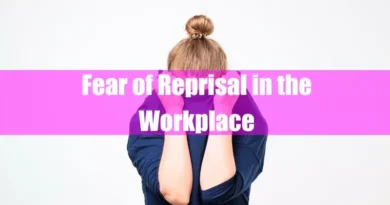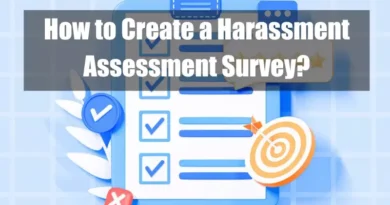Here is a table summarizing Key Takeaways from the Article “Understanding Unwanted Advances”:
| Section | Key Takeaways |
|---|---|
| Introduction | Unwanted advances encompass a wide range of unwelcome behaviors that violate an individual’s sense of safety and respect. Recognizing the prevalence and impact of these advances is essential for fostering healthy and respectful interactions. |
| Defining the Spectrum | Unwanted advances can range from subtle hints and persistent compliments to verbal pressure, coercive tactics, non-verbal intrusion, and online harassment. All these behaviors share a common characteristic: disregarding the recipient’s boundaries and comfort. |
| Recognizing Unwanted Advances in All Their Guises | This section highlights the difficulty in recognizing unwanted advances due to their often ambiguous nature. Key elements include the importance of trusting one’s gut feeling, recognizing verbal cues as tools of manipulation, and understanding how body language can silently convey discomfort or violation. Power dynamics, cultural nuances, and the influence of alcohol and drugs further complicate the recognition of unwanted advances. |
| Tools and Strategies for Responding to Unwanted Advances | Effective response strategies include setting clear boundaries, assertive communication, deflecting or disengaging when necessary, bystander intervention, and prioritizing self-care. These tools empower individuals to navigate unwanted advances while maintaining their safety and well-being. |
| Understanding the Impact of Unwanted Advances | Unwanted advances can lead to significant psychological, social, and legal repercussions, including anxiety, depression, trauma, strained relationships, and professional challenges. The ripple effect of these advances contributes to a broader culture of fear and silencing. |
| Fostering Respectful Interactions and Preventing Unwanted Advances | Preventing unwanted advances requires a collective effort to cultivate empathy, champion respect and consent, challenge harmful societal norms, and empower individuals. Education, open communication, bystander intervention, and mental health support are critical components of this effort. |
Let’s discuss in detail:
I. Introduction
Unwanted advances encompass a spectrum of unwelcome behaviors exceeding the bounds of comfortable social interaction. They range from subtle hints and persistent compliments that cross boundaries to explicit pressure and demands for attention or affection.
At their core, they violate the recipient’s right to How Does A Man Make A Woman Feel Safe: 15 Things” data-wpil-monitor-id=”6895″>feel safe, respected, and in control of their own interactions.
II. Defining the Spectrum
Unwanted advances transcend a singular definition. They range from seemingly harmless, yet uncomfortable, compliments that overstep boundaries to blatant demands for attention and affection.
The spectrum encompasses:
- Subtle hints: Lingering stares, persistent compliments that cross lines, suggestive jokes that leave discomfort in their wake.
- Verbal pressure: Unwanted inquiries about personal life, suggestive comments, manipulative guilt trips, or demands for attention.
- Coercive tactics: Threats, ultimatums, manipulating situations to create an obligation, or exploiting power dynamics to pressure compliance.
- Non-verbal intrusion: Intrusive body language, unwanted touching, lingering physical contact, or following behavior that creates a sense of violation.
- Online harassment: Sexting, cyberbullying, unwanted messages or interactions through social media or messaging platforms.
These behaviors, in all their various forms, share a common characteristic: they disregard the recipient’s boundaries and comfort, leaving them feeling objectified, belittled, and even threatened.
Understanding this core characteristic is crucial for recognizing and navigating unwanted advances effectively.
III. Recognizing Unwanted Advances in all their Guises

The terrain of human interaction can be confusing, especially when deciphering the intentions behind certain behaviors. Unwanted advances often hide in the shadows, masked by ambiguity and mixed signals. Recognizing them requires navigating a nuanced maze, where intuition, sensitivity, and awareness are your guiding lights.
A. Unraveling the Gray Areas
Not all interactions leave you with a clear-cut sense of comfort or discomfort. The gray areas exist, where seemingly casual gestures or playful jokes can cross the line, leaving you uneasy without a readily identifiable reason. This ambiguity is often weaponized by perpetrators, who rely on a “just kidding” excuse to downplay their behavior. In these situations, be mindful of:
- Your gut feeling: That knot in your stomach or the prickling on your skin is often your body screaming, “Something’s not right.” Trust your intuition and pay attention to internal cues.
- Escalation: Did a seemingly harmless joke suddenly become laced with a suggestive undertone? Has playful teasing morphed into persistent pressure? Escalation is a red flag, indicating that seemingly insignificant gestures may be part of a larger pattern of unwanted advances.
- Context matters: A friendly compliment in a professional setting might feel acceptable, whereas the same comment delivered late at night could be perceived as inappropriate. Consider the context and environment when deciphering the intent behind gestures and words.
B. Verbal Cues: Words as Weapons
Unwanted advances often manifest through the spoken word. Be wary of:
- Sexually suggestive language: Comments focusing on your physical appearance, making unwanted sexual references, or veiled innuendos are not harmless observations. They are attempts to objectify and undermine your boundaries.
- Prying inquiries: Persistent questions about your personal life, past relationships, or vulnerabilities are not friendly curiosity. They are attempts to gain leverage and manipulate your emotions.
- Disrespectful humor: Jokes that belittle, undermine, or make you feel uncomfortable are not playful banter. They are tools to control the interaction and exert dominance.
C. Body Language: The Silent Scream
Beyond words, physical contact and gestures can also speak volumes:
- Unnecessary touching: Patting you on the back, lingering handshakes, or brushing against you unnecessarily are not accidental interactions. They are deliberate attempts to invade your personal space and violate your boundaries.
- Pressuring for physical intimacy: Demanding hugs, kisses, or sexual contact, regardless of your consent, is not affection. It is a blatant disregard for your autonomy and a violation of your right to choose.
- Impeding your space: Standing uncomfortably close, cornering you, or blocking your movement is not a sign of closeness. It is a tactic to control your physical freedom and intimidate you.
D. The Power Play: Unmasking Manipulation
Power dynamics can significantly influence the nature of unwanted advances. Be extra cautious when:
- Someone in a position of authority: Your boss, teacher, mentor, or any figure in a position of power using their influence to pressure you into unwanted advances is not offering admiration; they are manipulating your vulnerability.
- Targeting individuals in vulnerable situations: Preying on someone emotionally dependent on you (children, partners, family) or those facing financial hardship or social isolation adds a cruel layer of manipulation to unwanted advances.
- Fabricating obligations: Creating situations where you feel indebted, be it favors owed or emotional guilt, is a tactic to pressure you into accepting unwanted advances. Promises of career advancement or academic success in exchange for compliance are manipulative traps.
E. Cultural Nuances: Crossing Borders with Sensitivity

Cultural differences can shape perceptions of personal space, communication styles, and even humor. When interacting with individuals from diverse backgrounds, remember:
- Varying expectations: What constitutes a friendly gesture in one culture might be misinterpreted as an advance in another. Be mindful of differing expectations and avoid jumping to conclusions based on your cultural framework.
- Misinterpretations abound: Gestures like handshakes, pats on the back, or even eye contact can have varying meanings across cultures. Open communication and cultural sensitivity are key to avoiding unintended offenses.
- Seek clarification: If unsure about someone’s intentions, feel free to seek clarification in a respectful and non-accusatory manner. Open communication bridges cultural gaps and fosters understanding.
F. The Influence of Alcohol and Drugs
Intoxication adds a dangerous twist to the landscape of unwanted advances. Alcohol and drugs can distort interpretations, lower inhibitions, and decrease self-awareness, making individuals more vulnerable to both perpetrating and experiencing unwanted advances. Consider these factors:
- Distorted Perceptions: Under the influence, individuals may misinterpret gestures, jokes, or even body language, leading to unintentional advances or misperceptions of consent.
- Lowered Inhibitions: Intoxication can diminish self-control and increase the likelihood of engaging in behaviors that wouldn’t be considered acceptable when sober. This can result in unwanted advances fueled by impulsivity rather than malicious intent.
- Vulnerability to Manipulation: While not always the case, individuals under the influence can be more susceptible to manipulation or pressure, making them easy targets for those seeking to engage in unwanted advances.
G. Technology and Unwanted Advances
The digital realm opens new avenues for unwanted advances, often taking on unique and insidious forms. Be wary of:
- Cyberbullying and Harassment: Online platforms can become breeding grounds for unwanted advances in the form of abusive messages, unsolicited advances, and even threats.
- Sexting and Unwanted Images: Digital communication can facilitate sharing explicit content without consent, leading to feelings of violation and discomfort.
- Blurred Boundaries: Textual interaction lacks the physical cues of face-to-face communication, making it easier for misinterpretations and potentially unwanted advances to occur.
Staying safe online from unwanted advances is key! Use strong privacy settings to control who sees you, report any nasty messages or bad behavior to the platforms, and be clear about what’s okay and not okay with you in your online chats. Knowing when to say no and taking care of yourself online are super important.
IV. Tools and Strategies for Responding to Unwanted Advances

Navigating the terrain of unwanted advances can feel like traversing a minefield. But just as every war relies on effective defensive strategies, so can you equip yourself with powerful tools to respond to and deflect unwelcome behavior.
A. Setting Boundaries
Boundaries are the cornerstones of personal safety and respect. They define your comfort zone and communicate your non-negotiables to others. Here’s how to establish and enforce them effectively:
- Clarity is Key: Be clear and direct about your boundaries. Instead of vague hints, use straightforward language like “I’m not comfortable with that,” “Please stop,” or “This makes me feel uncomfortable.”
- Consistency is Power: Don’t waver. Repeat your boundaries as needed, and ensure your actions back up your words. Inconsistency sends confusing signals and undermines your position.
- Anticipate Pushback: Be prepared for perpetrators to challenge or test your boundaries. Remain firm; don’t be afraid to walk away or disengage if necessary.
B. Speak Your Truth
Communication is your sword and shield against unwanted advances. Learn to assert yourself with confidence and clarity:
- Direct Language: Use “I” statements to voice your discomfort, such as “I feel uncomfortable when you…” or “I don’t appreciate that kind of comment.”
- Firm Tone: Speak clearly and steadily, avoiding self-deprecation or apologies. A confident tone conveys your conviction and discourages further advances.
- Seek Support: Don’t hesitate to seek support from trusted friends, family, or colleagues. Sharing your experience and receiving validation can empower you to assert yourself effectively.
C. Deflecting and Disengaging
Sometimes, direct confrontation may not be the safest or most effective option. Consider these alternative strategies for disengaging from unwanted advances:
- Humor: Humor can defuse tension and redirect the conversation. A witty remark or playful response can sometimes take the wind out of the perpetrator’s sails.
- Subject Change: Shift the conversation to a neutral topic, effectively shutting down the unwelcome one. Practice smooth transitions and keep the new topic engaging to maintain control of the interaction.
- Exit Strategy: Always have an escape plan in mind, whether it’s leaving the conversation, excusing yourself to the bathroom, or simply ending the meeting early. Don’t hesitate to remove yourself from situations that make you feel uncomfortable.
D. Bystander Intervention
Witnessing someone else experiencing unwanted advances can be a challenging situation. Yet, your intervention can make a world of difference. Here’s how:
- Distraction: Create a distraction, such as interrupting the conversation or asking the victim for help. This can break the power dynamic and create an opportunity for escape.
- Direct Support: Offer direct support to the victim, such as asking if they’re okay or need to walk away. Your presence and concern can be a powerful source of strength.
- Reporting Behavior: If the situation warrants it, report the perpetrator to relevant authorities or trusted personnel. Addressing the behavior directly can prevent future occurrences and protect others.
E. Self-Care
Responding to unwanted advances can take a toll on your emotional well-being. Prioritize self-care to navigate this experience with resilience and grace:
- Emotional Processing: Acknowledge your emotions, whether it’s anger, sadness, or fear. Talk to a trusted friend, therapist, or support group to process your experience healthily.
- Stress Management: Practice stress-management techniques like meditation, yoga, or deep breathing exercises to cope with the emotional impact of the experience.
- Positive Affirmations: Remind yourself of your worth and your right to respect. Positive self-talk can help restore your confidence and combat any self-doubt caused by unwanted advances.
Remember, navigating unwanted advances is not about blame or shame. It’s about understanding, communication, and empowerment. By equipping yourself with effective tools and taking care of your well-being, you can reclaim your boundaries, assert your voice, and create a safe space for yourself and others.
V. Understanding the Impact of Unwanted Advances

Unwanted advances don’t merely disrupt fleeting moments; they can leave indelible marks on the psyche, relationships, and society as a whole. Understanding these impacts is crucial for fostering empathy, seeking support, and advocating for change.
A. Psychological Scars
- Anxiety and Fear: The pervasive nature of unwanted advances can lead to heightened anxiety, fear of social interactions, and a constant sense of being on guard.
- Depression and Isolation: The emotional toll can manifest as depression, withdrawal from social activities, and a loss of interest in things once enjoyed.
- Trauma: In severe cases, unwanted advances can result in trauma, leading to flashbacks, nightmares, and post-traumatic stress disorder (PTSD).
- Psychological Distress: The stress of enduring unwanted advances can lead to decreased concentration, sleep problems, and a general sense of unease.
- Self-Blame and Shame: Perpetrators often shift blame, leading victims to internalize negative feelings and question their actions, eroding self-esteem and confidence.
B. Social Repercussions
- Strained Relationships: Unwanted advances can strain relationships with friends, family, and partners, as individuals may struggle to trust others or feel isolated in their experiences.
- Professional Challenges: Workplace harassment can negatively impact job satisfaction, productivity, and career advancement, creating a hostile work environment.
- Social Withdrawal: The fear of encountering further unwanted advances can lead to social isolation, withdrawal from activities, and a diminished sense of community.
C. Legal Considerations
- Harassment Laws: Unwanted advances often fall under the umbrella of harassment, which is illegal in most countries. Civil and criminal remedies may be available to those who experience such behavior.
- Reporting Challenges: Fear of retaliation, disbelief, or lack of support can deter victims from reporting incidents, making it difficult to hold perpetrators accountable.
- Legal Aid: Organizations and legal professionals can guide and support those seeking legal recourse for unwanted advances.
D. The Ripple Effect
Unwanted advances don’t exist in a vacuum. They contribute to a broader culture of disrespect, fear, and silencing, perpetuating harmful norms and limiting individuals’ potential to thrive in personal and professional spaces.
VI. Fostering Respectful Interactions and Preventing Unwanted Advances
The pervasive presence of unwanted advances demands a collective effort to dismantle the societal structures that enable them and cultivate environments where respect and consent reign supreme. Here are some crucial steps we can take to build a brighter future:
A. Cultivating Empathy and Awareness
- Education and Training: Implementing educational programs for individuals of all ages on topics like consent, boundaries, and recognizing the dangers of unwanted advances.
- Open Communication: Encouraging open and honest conversations about unwanted advances, challenging stigmas surrounding the issue, and creating safe spaces for individuals to share their experiences.
- Bystander Intervention Training: Equipping individuals with the skills and confidence to intervene effectively when witnessing unwanted advances happening to others.
B. Championing Respect and Consent
- Zero Tolerance Policies: Implementing and enforcing strong zero-tolerance policies against harassment and unwanted advances in schools, workplaces, and public spaces.
- Consent as Core Value: Fostering a culture of consent-based interactions, emphasizing that “no” means no, regardless of the circumstances.
- Positive Reinforcements: Celebrating and applauding individuals who promote respectful behavior and intervene against unwanted advances.
C. Challenging Harmful Norms
- Media Representation: Challenging stereotypical portrayals of gender roles and sexual relationships in media that contribute to the normalization of unwanted advances.
- Shifting Perspectives: Debunking myths and harmful stereotypes surrounding victims of unwanted advances, replacing blame with empathy and understanding.
- Addressing Power Dynamics: Recognizing and dismantling power imbalances that create vulnerabilities and facilitate unwanted advances, particularly in professional settings.
D. Empowering Individuals
- Promoting Self-Defense Training: Offering self-defense training programs to equip individuals with skills to de-escalate situations and protect themselves from physical harm.
- Mental Health Support: Providing accessible mental health services to individuals who have experienced unwanted advances, helping them cope with the emotional and psychological consequences.
- Empowering Bystanders: Encouraging individuals to speak up and challenge inappropriate behavior, creating a supportive and responsive community environment.
By embracing these strategies, we can dismantle the culture of silence surrounding unwanted advances, create a safe and respectful world for everyone, and ensure that the spectrum of unwanted behaviors becomes a relic of the past. Remember, each of us is responsible for cultivating empathy, advocating for change, and fostering a future where consent and respect are the cornerstones of every interaction.
VII. Conclusion
The Time to Act is Now: Let’s not just understand unwanted advances; let’s stop them! Each of us has a role to play. We can advocate for change by setting strong boundaries, speaking up for others, and challenging harmful norms.
Together, we can build a society where everyone feels safe and respected.









